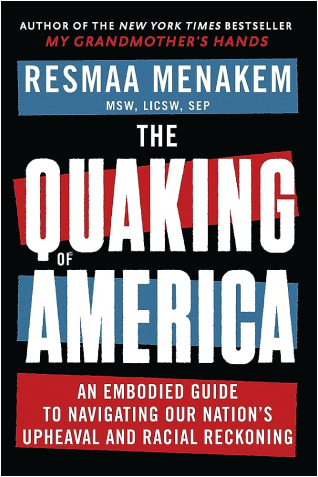Many Black women experience themselves as fraudulent or substandard. It’s a lie.
While I hope that as many people as possible read this blog entry, I’m writing it especially for Black women. To each of my sistas, I say boldly: You are not defective.
The core message of white-body supremacy, or WBS, is that the white body is the supreme standard against which all other bodies are to be judged. According to WBS, all nonwhite bodies are subpar, insufficient, inadequate, deviant, less than fully human, and, above all, defective.
For centuries, this message has been passed from person to person and generation to generation. It is spread through customs, norms, institutions, structures, and law. For centuries, it has been absorbed into hundreds of millions of bodies of all skin tones.
Because this message is a lie, it damages every body, mind, and soul that absorbs it. However, in my work as a therapist over the past 25 years, I’ve observed that the people whom it damages the most are Black women.
In America, Black women often experience themselves as fraudulent, substandard, or not good enough. Many are caught in self-doubt or self-recrimination. Some struggle with impostor syndrome, in which they doubt their own skills, talents, and accomplishments, and live in fear of being exposed as frauds. Many routinely discount or ignore their own needs and experience, while attending to the needs and desires of others. Some let other people take credit for their work, their insights, and their achievements.
I don’t just see this in my therapy office. I’m regularly interviewed by the media, and my interviewers are often supremely talented Black women. Most are highly successful, deeply intelligent, widely recognized, and well-paid. Yet during some of these interviews, when I mention impostor syndrome and a sense of never measuring up, these women say to me, “Resmaa, that’s it exactly. That’s just how I feel sometimes.” On occasion, I see tears start to form in their eyes.
This sense of defectiveness appears to be widespread among Black women in America. Even being a mega-celebrity doesn’t necessarily extinguish it. At times, Oprah Winfrey has struggled with self-doubt, and with putting other people’s needs above her own. In 2018, shortly after the publication of her bestselling memoir, Michelle Obama said, “I still have a little [bit of] impostor syndrome. It doesn’t go away, that feeling that you shouldn’t take me that seriously.”
Michelle Obama and Oprah Winfrey are not defective. Neither are you.
I want every one of my sistas to know this: Any inferiority or worthlessness or self-doubt that you experience is not personal. It’s structural. It’s a manifestation of living in a world where nonwhite bodies are considered deviant, abnormal, and below par. It is a toxic vibration in your body created by our culture, our institutions, and the ways in which we interact. This vibration is everywhere—and it is a lie.
The body practice below will help you and one of your sistas to shed this lie.
Witnessing Completeness and Sufficiency
Do this activity with another Black woman whom you trust. It’s best to do it in person, but you can also use Zoom, Skype, FaceTime, etc. If it’s not possible for you to do this practice with someone else, you can be your own witness.
Sit silently in a quiet room together—just the two of you—for 30 to 60 seconds. (If you’re reading this during a pandemic, wear masks and sit at least six feet apart.)
You will speak first; your companion will be your witness. While you speak, she should simply watch and listen. She can nod or grunt or say umm-hmm, but she should not coach you, speak to you, or touch you.
Say to her loudly, clearly, and firmly: “I am not defective.”
Pause for a few seconds. Then say it again, but add your name. For example: “I, Angela, am not defective.” Pay attention to your body as you speak. Experience the vibration of the words throughout your body.
Pause for a few more seconds. Now cover your ears with your palms and press down lightly. Say the words again—for example: “I, Angela, am not defective.” Experience the vibration throughout your body once again.
Remove your hands from your ears. Nod to your witness. She now says to you, clearly and firmly, “You are not defective,” and adds your name. For example: “You are not defective, Angela.” Sit together in silence for half a minute.
Now switch, so that your companion will speak and you will be her witness.
This activity, with each of you having a chance to speak, should take no more than about five minutes.
Do this practice at least three times a day for 30 days. If you can’t do it three times a day, do it as often as you can. You can experience it with same witness each time, or with different Black women as witnesses.
After 30 days, consider making this practice a daily or regular habit.
As your brotha, know that I love you and I see you.

